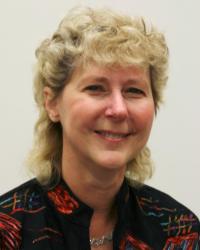UF tackles dire shortage of teachers—and professors—in special education
Posted Feb. 3, 2010
GAINESVILLE, Fla. – The demand for more special-education teachers has plagued American school systems for more than two decades, but University of Florida education researchers cite another disturbing trend that magnifies the problem—a dearth of qualified university faculty to groom the next generation of special-education teachers.
An $800,000 federal grant may help to solve the problem.
“A critical shortage of special-education faculty at the university level, especially those with expertise in severe disabilities, poses the greatest obstacle to preparing competent teachers to meet the needs of students with severe disabilities,” said Diane Ryndak, associate professor in special education and occupant of the endowed B.O. Smith Research Professorship at UF’s College of Education. “More than 90 percent of Florida’s teachers who serve students with major support needs still lack the state’s endorsement for teaching in this specialized field.”
 Ryndak is working to improve access to training. She is leading a new effort—called Project PRAIS—to help institutions of higher education resolve the shortage of special education professors in the field of severe disabilities. Under the grant from the U.S. Department of Education, her UF team will recruit and prepare three new doctoral students in special education who seek to become university researchers and professors with expertise in significant disabilities.
Ryndak is working to improve access to training. She is leading a new effort—called Project PRAIS—to help institutions of higher education resolve the shortage of special education professors in the field of severe disabilities. Under the grant from the U.S. Department of Education, her UF team will recruit and prepare three new doctoral students in special education who seek to become university researchers and professors with expertise in significant disabilities.
UF also will hire eight postdoctoral fellows—one per semester under the four-year grant—who will collaborate with the doctoral students on research projects and assist in mentoring them about teacher preparation and educational services for students with severe impairments.
“This represents an all-out, aggressive effort to develop new leaders in the preparation of teachers with expertise in severe disabilities,” Ryndak said.
The help is long overdue in this state. In Florida universities, Ryndak said there are few special-education professors qualified to prepare teachers in the field of severe disabilities. Since 2007, UF, Florida State University and the University of North Florida have collaborated in a statewide distance-learning consortium to groom teachers in this field—with Internet and videoconference links to each other and to participating special-education programs at Florida Gulf Coast University and the universities of South Florida and West Florida.
While this joint effort helps, Ryndak said it doesn’t come close to meeting the need for more special-education teachers in severe disabilities. “Many teachers do not live close enough to a university that offers courses required for this endorsement,” Ryndak said.
UF’s federal grant covers the tuition and assistantships for the doctoral students and postdoctoral fellows. In exchange, they each must commit to working two years in the field for every year of coursework they complete, or repay the tuition assistance they received. Some doctoral students ideally will fill university faculty positions in Florida and prepare additional special education teachers—and university professors—with expertise in severe disabilities.
The UF College of Education’s multicultural affairs office will help to recruit doctoral candidates from underrepresented ethnic and cultural backgrounds, to match the typical diversity of students with special needs in public schools.
The doctoral students will conduct supervised research and learn research-based interventions and assistive technology to help students with disabilities participate and learn in inclusive general-education classrooms. Under Ryndak’s mentorship, they also will assist in updating instructional materials and help teach the graduate courses leading to Florida’s endorsement in severe disabilities.
“Project PRAIS will provide training and experiences that go beyond a university’s standard doctoral program,” Ryndak said. “Our Ph.D. students will develop the knowledge and skills needed to provide highly effective teacher education and research related to the preparation of teachers serving students with severe disabilities.”
# # #
CONTACTS
SOURCE: Diane Ryndak, associate professor in special education, UF College of Education, (w) 352-273-4290, (c) 352-219-9012; dryndak@ufl.edu
WRITER: Larry Lansford, News & Communications, UF College of Education, 352-273-4137; llansford@coe.ufl.edu




